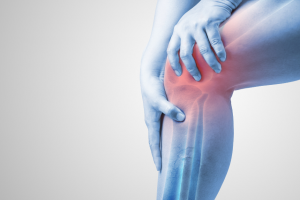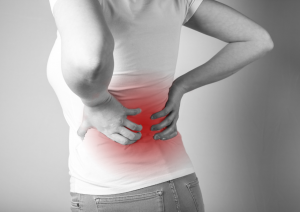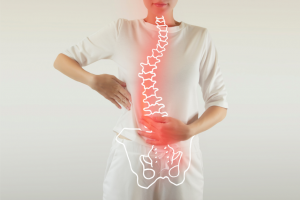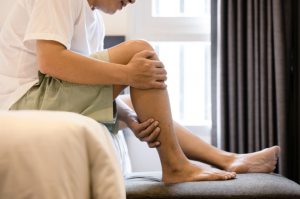What is Muscle Strength?
 Muscle strength is the ability of muscles to generate force against resistance during contraction. It plays a crucial role in supporting various daily activities, such as walking, lifting objects, and maintaining posture. Muscle strength is essential for overall physical function and mobility, as well as preventing injuries and maintaining independence.
Muscle strength is the ability of muscles to generate force against resistance during contraction. It plays a crucial role in supporting various daily activities, such as walking, lifting objects, and maintaining posture. Muscle strength is essential for overall physical function and mobility, as well as preventing injuries and maintaining independence.
Acupuncture can help improve muscle strength by stimulating specific acupoints related to muscle function and motor control. By regulating the body’s Qi flow and promoting circulation, acupuncture can enhance muscle performance, reduce muscle fatigue, and improve overall strength and endurance.
Physiotherapy focuses on exercises and techniques to optimize muscle strength, flexibility, and function. Physiotherapists prescribe targeted exercises, stretches, and manual therapy techniques to strengthen muscles, improve joint mobility, and address any underlying biomechanical imbalances contributing to muscle weakness.
By combining acupuncture and physiotherapy, individuals can benefit from a comprehensive approach to improving muscle strength and overall physical function. Acupuncture helps enhance the body’s natural healing mechanisms and energy flow, while physiotherapy provides targeted exercises and interventions to strengthen muscles and improve mobility. This integrated approach can support individuals in achieving their goals for muscle strength, rehabilitation, and optimal health.
Health Issues Related to Muscle Strength
Several health issues can be related to muscle weakness or impaired muscle strength.

- Musculoskeletal Injuries: Muscle weakness can contribute to an increased risk of musculoskeletal injuries, such as strains, sprains, and fractures. Physiotherapy can help rehabilitate injured muscles and improve strength to prevent future injuries.

- Chronic Pain: Weak muscles may lead to imbalances in the body, causing chronic pain in various areas, including the back, neck, shoulders, and knees. Physiotherapy techniques such as manual therapy, exercise therapy, and acupuncture can help alleviate pain by strengthening muscles and improving joint function. A strength reduction of 20–30% in a painful limb seems to be ‘normal’ in chronic pain patients.[1]

- Functional Limitations: Muscle weakness can impair daily activities such as walking, climbing stairs, lifting objects, and maintaining balance. Physiotherapy interventions focus on improving functional abilities through targeted exercises, mobility training, and assistive devices. Musculoskeletal conditions can significantly limit mobility and dexterity, leading to early retirement from work, lower levels of well-being, and reduced ability to participate in society.[2]

- Postural Problems: Weak muscles can contribute to poor posture, leading to issues such as rounded shoulders, forward head posture, and pelvic tilt. Physiotherapy can address postural problems by strengthening weak muscles, stretching tight muscles, and improving body mechanics. According to research, it demonstrated how bad posture affects muscles, joints, and connective tissue over time.[3]

- Reduced Mobility: Muscle weakness can result in reduced mobility and flexibility, making it challenging to perform activities of daily living and participate in recreational activities. Physiotherapy can help improve mobility through exercises, stretching, and manual therapy techniques.

- Fall Risk: Weak muscles and impaired balance increase the risk of falls, especially in older adults. Physiotherapy interventions focus on improving strength, balance, and coordination to reduce the risk of falls and enhance safety. Impaired mobility and poor muscle strength have been consistently identified as the main contributors to falls.[4]
By addressing muscle weakness and related health issues through acupuncture and physiotherapy, individuals can improve their overall physical function, reduce pain, and enhance their quality of life. We offer holistic approaches to restoring muscle strength, promoting mobility, and optimizing health and well-being.
What self-care Method Can Help Muscle Strength?

- Regular Exercise: Engage in regular physical activity that includes both aerobic exercises and strength training. Incorporating activities like walking, swimming, or cycling can improve cardiovascular health, while resistance training with weights or resistance bands can help build muscle strength.

- Balanced Diet: Maintain a balanced diet rich in lean proteins, fruits, vegetables, whole grains, and healthy fats to provide essential nutrients for muscle repair and growth. Adequate protein intake is particularly important for supporting muscle strength and recovery. Some supplementation studies have been effective, suggesting that increases in nutrient intake may be needed by at-risk individuals.[5]

- Adequate Rest and Recovery: Allow your muscles time to rest and recover between workouts to prevent overtraining and reduce the risk of injury. Ensure you get enough sleep each night to support muscle repair and growth.

- Stress Management: Practice stress-reduction techniques such as meditation, deep breathing exercises, or yoga to manage stress levels. Chronic stress can negatively impact muscle strength and recovery, so finding ways to relax and unwind is essential.

- Proper Posture: Maintain good posture during daily activities and exercises to prevent muscle imbalances and reduce the risk of injury. Avoid prolonged sitting or standing in one position and incorporate stretching breaks into your routine to alleviate muscle tension.
By incorporating these self-care practices into your daily routine, you can support muscle strength, improve physical function, and enhance overall well-being.
How Can We Help?
At Happipuncture, we integrate acupuncture and physiotherapy to enhance muscle strength and physical function. We take a holistic approach, addressing emotional and lifestyle factors. Our personalized treatment plans foster long-term muscle strength improvements. We also provide education and support, guiding clients in self-care practices and lifestyle adjustments.
Contact Happipuncture today to start your journey to improved muscle strength and overall well-being.




